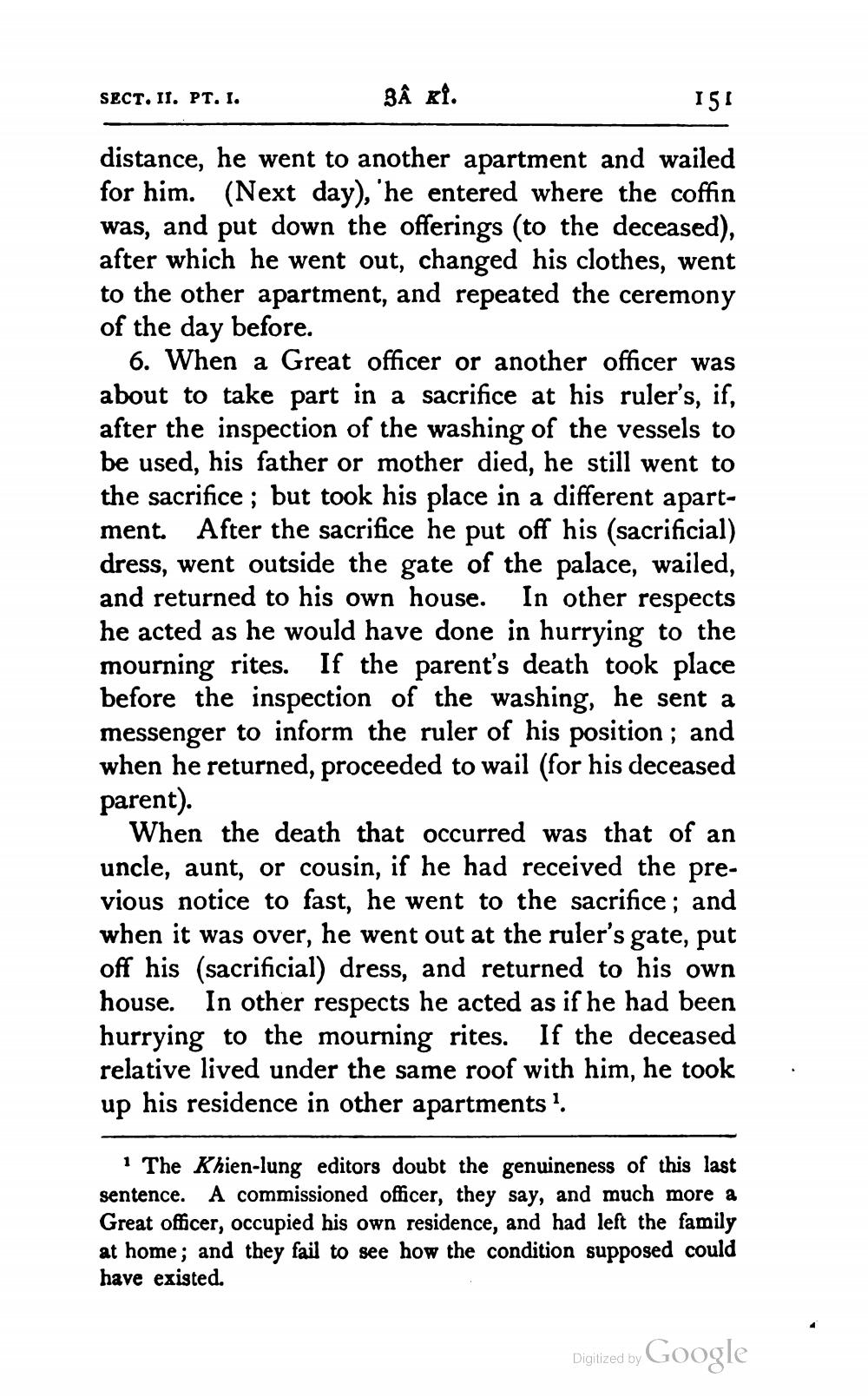________________
Bâ ki.
distance, he went to another apartment and wailed for him. (Next day), 'he entered where the coffin was, and put down the offerings (to the deceased), after which he went out, changed his clothes, went to the other apartment, and repeated the ceremony of the day before.
ment.
6. When a Great officer or another officer was about to take part in a sacrifice at his ruler's, if, after the inspection of the washing of the vessels to be used, his father or mother died, he still went to the sacrifice; but took his place in a different apartAfter the sacrifice he put off his (sacrificial) dress, went outside the gate of the palace, wailed, and returned to his own house. In other respects he acted as he would have done in hurrying to the mourning rites. If the parent's death took place before the inspection of the washing, he sent a messenger to inform the ruler of his position; and when he returned, proceeded to wail (for his deceased parent).
SECT. II. PT. I.
151
When the death that occurred was that of an uncle, aunt, or cousin, if he had received the previous notice to fast, he went to the sacrifice; and when it was over, he went out at the ruler's gate, put off his (sacrificial) dress, and returned to his own house. In other respects he acted as if he had been hurrying to the mourning rites. If the deceased relative lived under the same roof with him, he took up his residence in other apartments 1.
1 The Khien-lung editors doubt the genuineness of this last sentence. A commissioned officer, they say, and much more a Great officer, occupied his own residence, and had left the family at home; and they fail to see how the condition supposed could have existed.
Digitized by
Google




